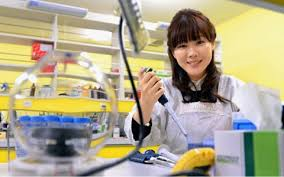
Breaking News
 Audio + English transcript from the closed-door July 9, 2025 court hearing in the case against...
Audio + English transcript from the closed-door July 9, 2025 court hearing in the case against...
 Trump: Obama started this WHOLE thing! (6 mins on it from the Maria B interview)
Trump: Obama started this WHOLE thing! (6 mins on it from the Maria B interview)
 Provoked: How Washington Started the New Cold War with Russia and the Catastrophe in Ukraine
Provoked: How Washington Started the New Cold War with Russia and the Catastrophe in Ukraine
 US Politics Is Just Nonstop Fake Revolutions Now
US Politics Is Just Nonstop Fake Revolutions Now
Top Tech News
 3D Printed Aluminum Alloy Sets Strength Record on Path to Lighter Aircraft Systems
3D Printed Aluminum Alloy Sets Strength Record on Path to Lighter Aircraft Systems
 Big Brother just got an upgrade.
Big Brother just got an upgrade.
SEMI-NEWS/SEMI-SATIRE: October 12, 2025 Edition
 Stem Cell Breakthrough for People with Parkinson's
Stem Cell Breakthrough for People with Parkinson's
 Linux Will Work For You. Time to Dump Windows 10. And Don't Bother with Windows 11
Linux Will Work For You. Time to Dump Windows 10. And Don't Bother with Windows 11
 XAI Using $18 Billion to Get 300,000 More Nvidia B200 Chips
XAI Using $18 Billion to Get 300,000 More Nvidia B200 Chips
 Immortal Monkeys? Not Quite, But Scientists Just Reversed Aging With 'Super' Stem Cells
Immortal Monkeys? Not Quite, But Scientists Just Reversed Aging With 'Super' Stem Cells
 ICE To Buy Tool That Tracks Locations Of Hundreds Of Millions Of Phones Every Day
ICE To Buy Tool That Tracks Locations Of Hundreds Of Millions Of Phones Every Day
 Yixiang 16kWh Battery For $1,920!? New Design!
Yixiang 16kWh Battery For $1,920!? New Design!
 Find a COMPATIBLE Linux Computer for $200+: Roadmap to Linux. Part 1
Find a COMPATIBLE Linux Computer for $200+: Roadmap to Linux. Part 1
Progress to turning silicon transistors into qubits which could enable billion qubit ...

Keiji Ono and colleagues from the RIKEN Center for Emergent Matter Science and the Toshiba Corporation in Japan, in collaboration with researchers from the United States, are investigating the properties of qubits produced by imperfections or defects in silicon MOSFETs. In particular, they are exploring their potential for developing quantum computing devices that are compatible with current manufacturing technologies.
"Companies like IBM and Google are developing quantum computers that use superconductors," explains Ono. "In contrast, we are attempting to develop a quantum computer based on the silicon manufacturing techniques currently used to make computers and smart phones. The advantage of this approach is that it can leverage existing industrial knowledge and technology."
After cooling a silicon MOSFET to 1.6 kelvin (−271.6 degrees Celsius), the researchers measured its electrical properties while applying a magnetic field and a microwave field.



